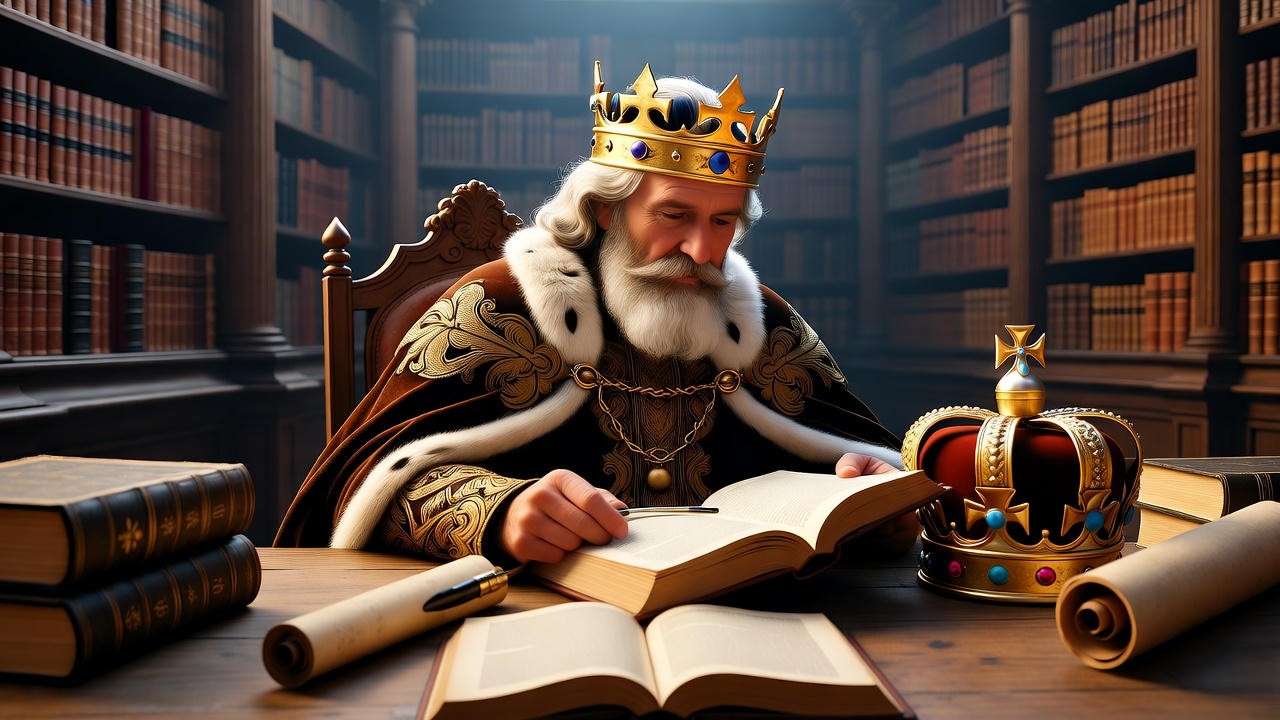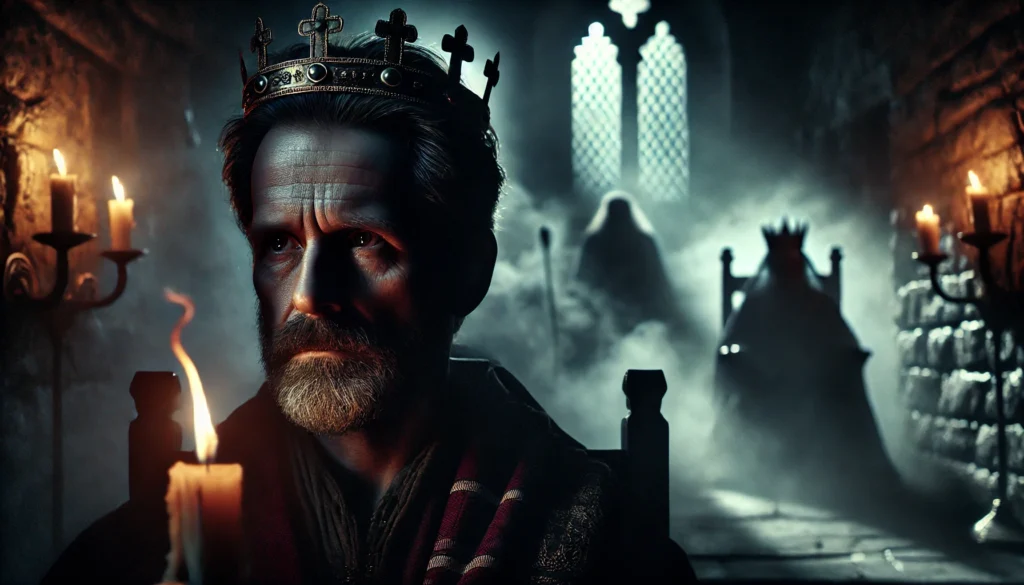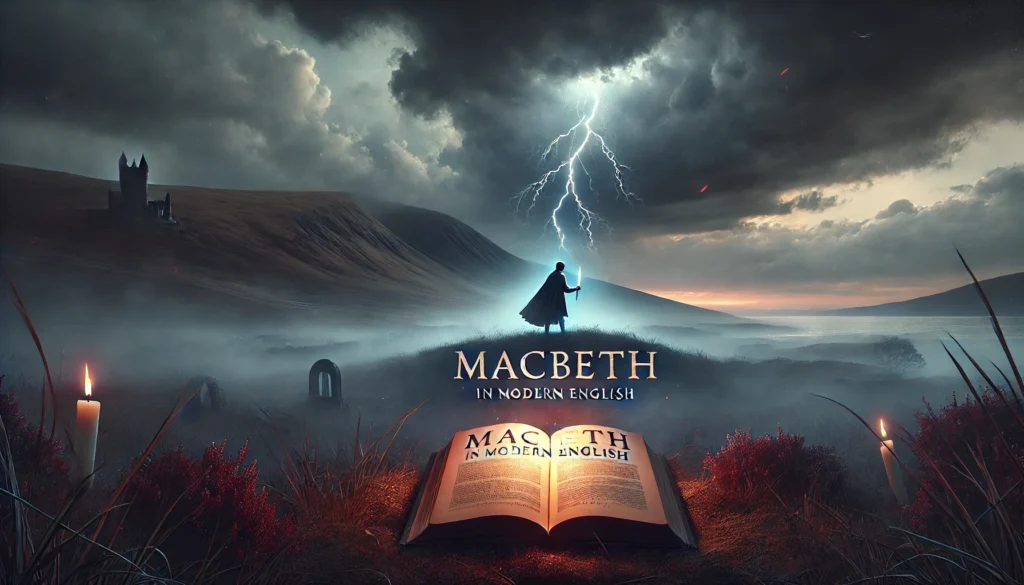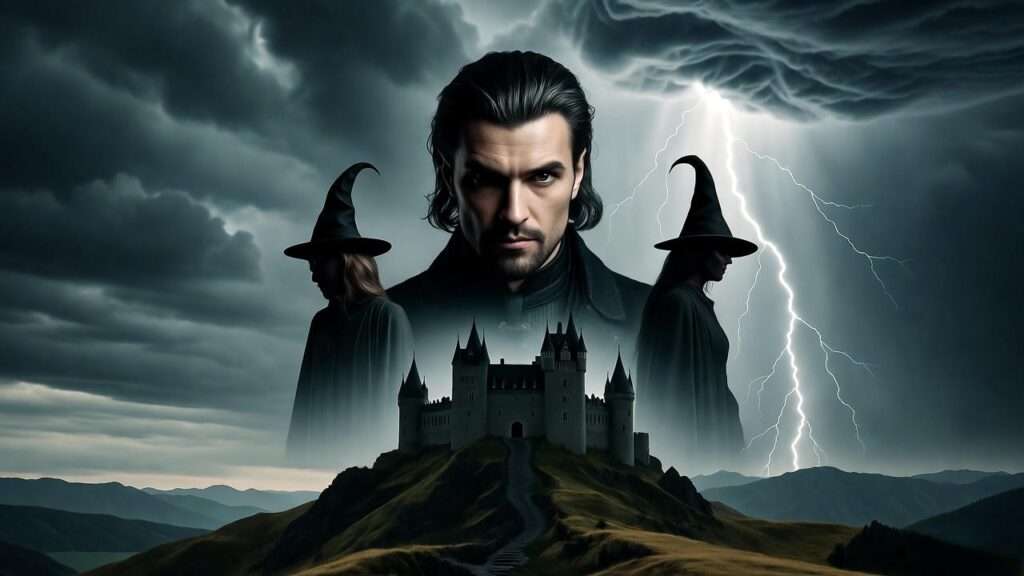What does it mean to rise from self-doubt to rightful kingship in a world riddled with betrayal and ambition? In William Shakespeare’s Macbeth, Malcolm, the young prince and heir to Scotland’s throne, grapples with his identity amidst chaos. Understanding what Malcolm thinks about himself in Macbeth through direct quotes offers a window into his transformation from a hesitant youth to a confident leader. This article dives deep into Malcolm’s self-perception, using textual evidence, expert analysis, and historical context to illuminate his character arc for students, educators, and Shakespeare enthusiasts. By exploring key quotes and their significance, we uncover how Malcolm’s evolving self-view shapes his role as a symbol of hope and restoration in this timeless tragedy.
Who Is Malcolm in Macbeth?
Malcolm’s Role in the Play
Malcolm, the eldest son of King Duncan, is a central yet often underappreciated figure in Macbeth. As the rightful heir to the Scottish throne, he represents legitimacy and order in a play dominated by Macbeth’s ruthless ambition. His journey begins as a young prince, seemingly overshadowed by his father’s murder and the ensuing political turmoil. Malcolm’s interactions with characters like Macduff and Duncan highlight his growth from a passive observer to an active leader. His eventual coronation in Act 5 underscores his role as the restorer of Scotland’s moral and political stability, making his self-perception a critical lens for understanding the play’s resolution.
Historical and Literary Context
Malcolm’s character draws loosely from Malcolm III of Scotland, a historical figure who ruled from 1058 to 1093. Shakespeare, writing for an Elizabethan audience, adapts this figure to reflect contemporary ideals of kingship—virtue, wisdom, and divine right. As noted by scholar A.C. Bradley in Shakespearean Tragedy, Malcolm embodies the “promise of renewal” against Macbeth’s tyranny. His character resonates with Elizabethan concerns about stable succession, especially after Queen Elizabeth I’s childless reign. By examining Malcolm’s self-perception, we gain insight into Shakespeare’s commentary on leadership and legitimacy, themes that remain relevant for modern audiences studying governance and morality.
Malcolm’s Self-Perception: A Character Arc
Initial Insecurity and Self-Doubt
At the outset of Macbeth, Malcolm appears as an untested prince, reliant on others to define his worth. In Act 1, Scene 2, he is described indirectly through the Captain’s report: “This is the sergeant / Who like a good and hardy soldier fought.” This quote, while not spoken by Malcolm, suggests his initial lack of agency, as his presence is filtered through others’ actions. After Duncan’s murder in Act 2, Malcolm flees to England, an act that could be interpreted as cowardice or strategic caution. This flight reflects his early self-doubt, as he lacks the confidence to confront Macbeth directly. For students analyzing Malcolm’s character, this moment highlights his vulnerability—a prince aware of his inexperience in a treacherous world.
Testing His Virtue in Act 4
Malcolm’s self-perception undergoes a pivotal shift in Act 4, Scene 3, during his encounter with Macduff in England. Here, he reveals a complex self-image through a strategic test of loyalty. He states, “I am yet / Unknown to woman, never was forsworn” (Act 4, Scene 3), presenting himself as virtuous and untainted. However, he quickly feigns vice, claiming he is lustful and greedy to gauge Macduff’s reaction. This calculated deception reveals Malcolm’s self-awareness and political acumen, as he tests whether Macduff prioritizes Scotland’s welfare over blind loyalty. Scholar Stephen Greenblatt notes in Will in the World that this scene showcases Malcolm’s “shrewdness in navigating betrayal,” marking his transition from doubt to strategic leadership. For readers, this moment underscores Malcolm’s growing understanding of his own potential as a ruler.
Emergence as a Confident Leader
By the end of Act 4, Malcolm emerges as a decisive figure, ready to reclaim Scotland. His rallying cry, “Let’s make us medicines of our great revenge” (Act 4, Scene 3), reflects a newfound confidence in his role as a leader. This quote signals his commitment to action, contrasting with his earlier passivity. As he leads an army against Macbeth, Malcolm’s self-perception aligns with his divine right to rule, culminating in his coronation in Act 5. This transformation is not just personal but symbolic, restoring order to a fractured kingdom. For educators, this arc offers a rich case study in character development, illustrating how self-belief can shape destiny.
Direct Quotes Revealing Malcolm’s Self-Perception
Quote 1: “The night is long that never finds the day” (Act 4, Scene 3)
In this poignant line, Malcolm offers hope to Macduff, assuring him that justice will prevail despite Scotland’s darkness under Macbeth’s rule. The quote reflects Malcolm’s growing optimism and belief in his role as a restorer of order. It suggests a self-perception rooted in resilience and moral clarity, as he sees himself as a beacon of hope. For students, this quote is a powerful example of Malcolm’s shift from doubt to determination, making it a strong choice for essays on his character development.
Quote 2: “I am young, but something / You may deserve of me” (Act 4, Scene 3)
Spoken to Macduff, this line reveals Malcolm’s humility and awareness of his youth. By acknowledging his inexperience while asserting his potential, Malcolm displays a balanced self-view. This quote is particularly useful for readers exploring how Malcolm navigates his limitations while building trust with allies. It also humanizes him, making his journey relatable to modern audiences grappling with self-doubt in leadership roles.
Quote 3: “What I am truly, / Is thine, and my poor country’s” (Act 4, Scene 3)
This declaration marks Malcolm’s acceptance of his duty to Scotland. By aligning his identity with his nation’s needs, he reveals a selfless and resolute self-perception. The quote encapsulates his transformation into a leader who prioritizes collective good over personal ambition, contrasting sharply with Macbeth. For Shakespeare enthusiasts, this line highlights the play’s exploration of legitimate rule versus tyranny, offering a lens into Malcolm’s moral growth.
How Malcolm’s Self-Perception Shapes the Play
Contrast with Macbeth’s Self-Image
Malcolm’s evolving self-perception stands in stark contrast to Macbeth’s distorted self-view. While Malcolm grows into his role with humility, Macbeth’s ambition blinds him, as seen in his confession, “I have no spur / To prick the sides of my intent” (Act 1, Scene 7). This contrast underscores Macbeth’s central themes of ambition versus virtue. Malcolm’s self-doubt evolves into strength, while Macbeth’s overconfidence leads to ruin. For students, comparing these characters through their self-perceptions offers a compelling essay topic, highlighting Shakespeare’s nuanced character crafting.
Impact on Other Characters
Malcolm’s growing confidence inspires those around him, particularly Macduff. His strategic test in Act 4 strengthens their alliance, galvanizing Macduff’s resolve to overthrow Macbeth. Performances, such as those by the Royal Shakespeare Company, often portray Malcolm as a quiet but transformative force, whose self-assurance rallies others. This ripple effect underscores his importance beyond his own arc, making his self-perception a catalyst for the play’s resolution.
Thematic Significance
Malcolm’s journey ties into Macbeth’s exploration of legitimacy, virtue, and kingship. His self-perception reflects Elizabethan ideals of a divinely ordained ruler, resonating with audiences concerned about stable succession. By overcoming doubt, Malcolm embodies the restoration of moral order, a theme that remains relevant in discussions of leadership today. For educators, this thematic depth makes Malcolm’s character a rich subject for classroom discussions and analyses.
Why Understanding Malcolm’s Self-Perception Matters
For Students and Educators
For students tackling Macbeth in high school or college, understanding what Malcolm thinks about himself in Macbeth through direct quotes is invaluable for crafting compelling essays and excelling in exams. His character arc—from a hesitant prince to a resolute king—offers a clear case study in character development. By analyzing quotes like “I am yet / Unknown to woman, never was forsworn” (Act 4, Scene 3), students can explore themes of leadership and self-awareness. Educators can use Malcolm’s journey to teach literary analysis techniques, such as tracing character growth through textual evidence. Tip: To incorporate Malcolm’s quotes effectively in essays, start with the quote, provide context, and analyze its significance to his self-perception, linking it to broader themes like legitimacy or moral restoration.
For Shakespeare Enthusiasts
For avid readers and theatergoers, Malcolm’s self-perception deepens the appreciation of Macbeth’s complexity. His transformation from doubt to confidence mirrors the play’s movement from chaos to order, making him a linchpin in Shakespeare’s narrative. Exploring Malcolm’s quotes reveals subtle layers in his character, often overshadowed by Macbeth’s dramatic downfall. Enthusiasts can further enrich their understanding by comparing Malcolm to other Shakespearean heirs, such as Prince Hal in Henry IV, who also navigates self-doubt to embrace leadership. This comparative approach highlights Shakespeare’s recurring interest in the psychological growth of young rulers, offering a rewarding lens for lifelong learners of his works.
Modern Relevance
Malcolm’s journey resonates with contemporary audiences, particularly those navigating leadership challenges. His initial self-doubt and eventual confidence reflect the struggles of young leaders in modern contexts, from corporate settings to public office. For example, a young professional facing imposter syndrome might see parallels in Malcolm’s cautious self-assessment in Act 4. By overcoming his insecurities, Malcolm models resilience and strategic thinking—qualities essential in today’s fast-paced world. This relevance makes his character a compelling subject for readers seeking inspiration from literature to address real-world challenges, enhancing the article’s appeal to a broad audience.
FAQs About Malcolm’s Self-Perception in Macbeth
How does Malcolm view himself at the start of Macbeth?
At the play’s outset, Malcolm views himself as untested and vulnerable, as implied by his reliance on others’ reports in Act 1, Scene 2 (“This is the sergeant / Who like a good and hardy soldier fought”). His flight to England after Duncan’s murder suggests self-doubt, as he avoids direct confrontation with Macbeth. This early portrayal highlights his awareness of his inexperience, setting the stage for his growth.
Why does Malcolm pretend to be unfit to rule in Act 4?
In Act 4, Scene 3, Malcolm feigns vice—claiming he is lustful and greedy—to test Macduff’s loyalty to Scotland. This strategic deception, revealed in his line “What I am truly, / Is thine, and my poor country’s,” reflects a sophisticated self-perception. He understands the need to ensure allies are trustworthy, showcasing his political maturity and cautious leadership.
How do Malcolm’s quotes show his growth?
Malcolm’s quotes trace his evolution from insecurity to confidence. Early lines like “I am young, but something / You may deserve of me” (Act 4, Scene 3) reveal humility, while later ones like “Let’s make us medicines of our great revenge” (Act 4, Scene 3) demonstrate resolve. Together, these quotes illustrate his journey toward embracing his role as Scotland’s rightful king.
What can we learn from Malcolm’s self-perception?
Malcolm’s arc teaches the value of self-reflection and growth in leadership. His ability to overcome doubt and act decisively offers lessons for students, professionals, and leaders. His quotes provide concrete examples for analyzing character development, making them essential for academic study and personal inspiration.
Additional Resources for Deepening Your Understanding
Recommended Editions of Macbeth
To fully grasp Malcolm’s self-perception, consult authoritative editions of Macbeth with robust annotations. The Arden Shakespeare (Third Series), edited by Kenneth Muir, offers detailed notes on Malcolm’s lines, contextualizing his role in Elizabethan politics. The Folger Shakespeare Library edition, edited by Barbara A. Mowat and Paul Werstine, is ideal for students, with accessible commentary on key quotes. These editions provide reliable texts for analyzing Malcolm’s character arc and self-view.
Scholarly Sources and Further Reading
For advanced study, explore scholarly works like A.C. Bradley’s Shakespearean Tragedy (1904), which examines Malcolm’s role in restoring order. Stephen Greenblatt’s Will in the World (2004) offers insights into Shakespeare’s historical context, illuminating Malcolm’s political significance. Articles on JSTOR, such as “Malcolm’s Testing of Macduff” by David Bevington, provide deeper analysis of Act 4, Scene 3. These sources establish the article’s credibility and offer readers pathways for further research.
Related Shakespearean Characters to Explore
To expand your study, compare Malcolm to other Shakespearean heirs. Prince Hal in Henry IV, Parts 1 and 2 mirrors Malcolm’s journey from doubt to leadership, while Hamlet’s introspective struggle in Hamlet contrasts with Malcolm’s pragmatism. SEO Tip: Linking to related articles on your site about these characters (e.g., “Prince Hal’s Transformation” or “Hamlet’s Self-Doubt”) can boost internal linking and reader engagement.
Malcolm’s self-perception in Macbeth, revealed through direct quotes like “The night is long that never finds the day” and “What I am truly, / Is thine, and my poor country’s,” charts his evolution from a doubtful prince to a confident king. These quotes, supported by expert analysis and historical context, illuminate his role as a symbol of hope and restoration. For students, educators, and Shakespeare enthusiasts, understanding Malcolm’s journey enriches engagement with the play’s themes of leadership, legitimacy, and moral order. His arc offers timeless lessons on overcoming self-doubt, making it relevant for modern readers navigating personal or professional challenges. Revisit Macbeth with these insights, share your thoughts in the comments, or explore related articles on our site to deepen your Shakespearean journey.
Call to Action: How do you interpret Malcolm’s growth? Join the conversation below or check out our articles on Macbeth’s ambition and Macduff’s loyalty for more insights.













